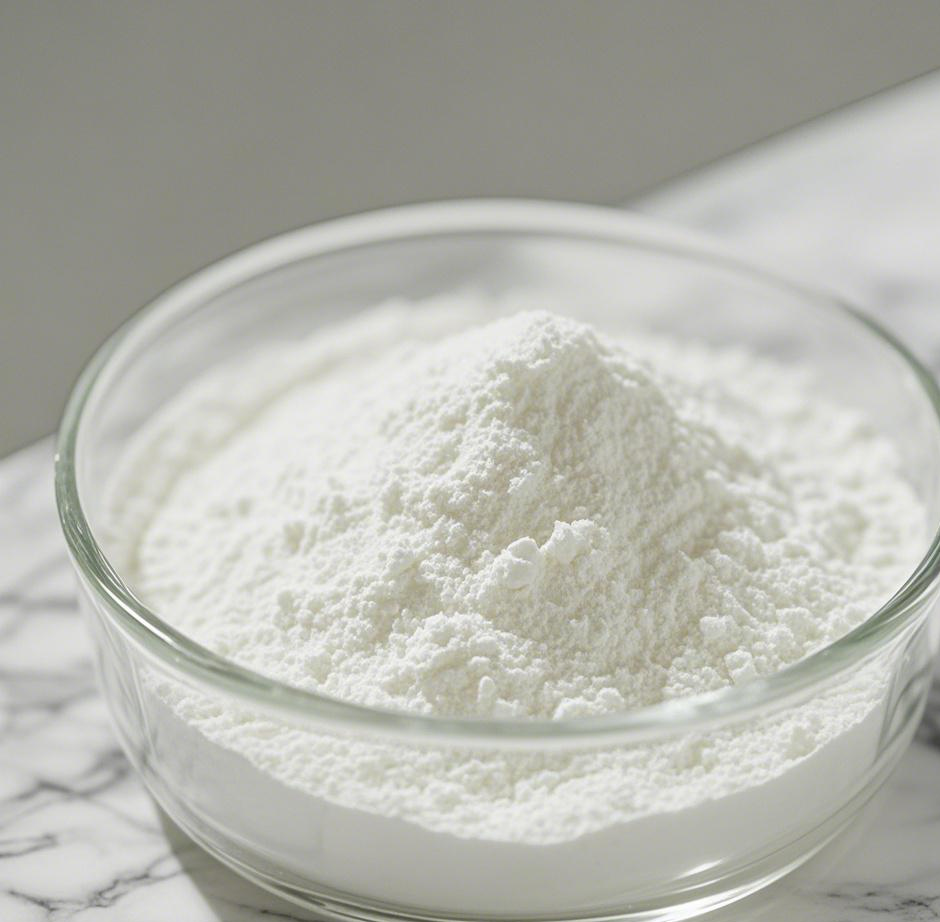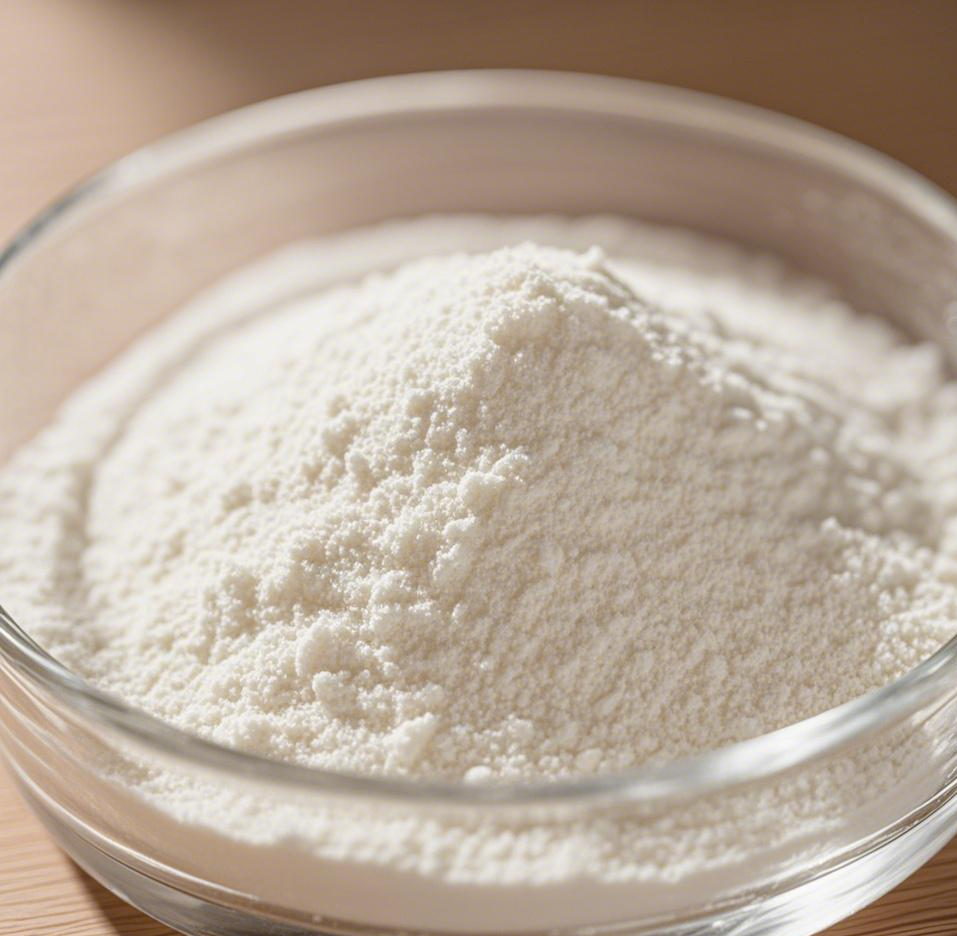התפקיד המרכזי של פחמימות בביצועים ספורטיביים
הפחמימות תמיד נחשבו לאבן הפינה של תזונת הספורט בזכות היכולת שלהן לספק אנרגיה מיידית, לתמוך בENDURANCE, ולתמוך בתהליך השיקום. מבין אופציות הפחמימות הרבות שזמיניות לספורטאים, מלטודקסטרין נחשבת לאחת מהמקורות הגמישים והנפוצים ביותר. היא מיוצרת מטחבים כמו תירס, אורז או תפוח אדמה באמצעות תהליך של הידרוליזה חלפתית. למרות שבטכנולוגיה היא נחשבת לפחמימה מורכבת, המלטודקסטرين מתנהגה יותר כמו סוכר פשוט בעת העיכול, מה שהופך אותה למصدر מהיר ויעיל של גלוקוז.
מלטודק스트רין מוכר היטב בעולם הספורט והכושר בזכות הספיגה המהירה שלו והיכולת לשחזר מאגרי הגליקוגן בצורה יעילה. כאשר ספורטאים מתאמנים או מתחרים, מאגרי הגליקוגן שלהם מתעייפים, מה שמביא לעייפות ולחוסר ביצועים. שימוש במלטודקסטרין בתוספי תזונה, שיקי ספורט ומשקאות ספורט עוזר להפיג ירידה זו על ידי אספקת גלוקוז מהירה ויציבה. הטעם הנייטרלי וההתמוססות העדיפה שלו מאפשרים שימוש בו בהרכבות רבות, החל מג'לים לאנרגיה וכלה בתערובות שחזור לאחר אימון.
בניגוד לסוגי סוכר מסוימים שיכולים לגרום לרעבון במערכת העיכול כאשר נצרכים בכמויות גדולות, מלטודקstrין מתקבלת בדרך כלל היטב. עובדה זו הופכת אותה למוכוון לספורטאים שזקוקים לצריכת פחמימות גבוהה, במיוחד במהלך אירועים מתמשכים. על ידי אספקת אנרגיה מיידית וקידום שיקום מהיר יותר, מלטודקstrין ממלאה תפקיד חשוב באסטרטגיות תזונה ספורטיבית מודרניות שמטרתן אופטימיזציה של תפקוד ותמיכה בשיקום שרירים.
יישומים של מאלטודקסטرين בתזונת ספורט
נוסחאות לפני אימון
מזונות תומכים לפני אימון נועדו להכין את הגוף לפעילות אינטנסיבית, ומאלטודקסטرين נכלל בהם לעיתים קרובות בשל היכולת שלו לספק מקור אנרגיה מהיר. לפני אימון, הספורטאים צריכים פחמימות שמפוצלות במהירות, ומאלטודקסטرين מווסת כי הגלוקוז ייכנס ביעילות לזרם הדם. הדבר מונע עייפות מוקדמת ומאפשר לספורטאים להציג תוצאות ברמות גבוהות כבר מההתחלה.
הטמפרטורה הנייטרלית שלו טעם מהווה קל להשלב מالتודקסטרין עם חומצות אמינו, קפאيين, אלקטרוליטים או ויטמינים בתערובות לפני אימון. בכך, ספורטאים לא רק שמאיצים את שרירייהם אלא גם תומכים בהידרציה ובריכוז הנפשי. התוצאה היא תוסף מקיף שמתמודד עם מספר צרכים בתרומה אחת.
שתיות אנרגיה במהלך האימון
במהלך סיבתי אימון ממושכות או אינטנסיביות, שיקום רמות האנרגיה הוא קריטי. שתיית אינטרא-אימון לרוב סומכות על מלטודקסטرين בתור הפחמן הראשי שלהן, מאחר שהיא מספקת גלוקוז יציב ללא מתיקות מוגזמת. זה הופך אותה לקלות לצריכה בכמויות גדולות מבלי לגרום לעמימות טעמית.
מלטודקסטرين נמסת בקלות במים, מה שהופך אותה לרצויה עבור שתיית ספורט ממוקדים בהידרציה הנצרכות באמצע הסשן. בין אם ברכיבה על אופניים, ריצה על טווח, או אימון פונקציונלי אינטנסיבי, מלטודקסטرين מוכיחה שהשרירים מקבלים את הדלק הדרוש כדי להמשיך להתכווץ בתפוקה. ספורטאים המשלבים שתיית אימונים אלו לתוכניתם לרוב חווים ירידה פחותה בתפוקה במהלך פעילות ממושכת.
שחזור לאחר אימון מוצרים
לאחר אימון או תחרות, מאגרי גליקוגן זקוקים לחידוש, וסיבי שריר זקוקים לתיקון. מלטודקסטרין משולב לעתים קרובות עם מקורות חלבון בשייקים להתאוששות לאחר אימון בגלל יכולתו להגביר את רמות האינסולין. עלייה זו מעודדת ספיגת חומצות אמינו לתאי שריר, מאיצה את ההתאוששות ומשפרת את הצמיחה.
בעוד שחלק מהפחמימות משלימות את גליקוגן הכבד ביתר אפקטיביות, מלטודקסטرين מכוון לשיקום גליקוגן שרירי, מה שקריטי לספורטאים המאומנים בקביעות. היכולת שלו להיספג במהירות גורמת לכך שהתהליך של שיקום יתחיל כמעט מיד לאחר האימון, מקצר את זמן השהיה בין האימונים ותומך בשיפורים מתמידים בביצועים.
יתרונות מלטודקstrin בביצוע ספורטיבי
זמינות אנרגיה מהירה
היתרון העיקרי של המלטודקסטرين הוא היכולת שלו לפעול במהירות. ספורטאים זקוקים לפחמימות שמספקות גלוקוז ללא עיכוב, והמלטודקסטرين מצליח בכך משום שהוא נספג לתוך הדם מהר מהרבה מקורות פחמימה אחרים. משלוח מהיר זה תומך במאמצים אקספלווזיביים, סורקים חוזרים ותימוכן באירוביקה כאחד.
קל ליה ספיגה וסובלנות
ספורטאים נוטים לצרוך כמויות גדולות של פחמימות במהלך תחרויות, וסובלנות הופכת לגורם מפתח. בשונה מסוכרים כמו פרוקטוז שיכולים לגרום לאי נוחות במערכת העיכול, המלטודקסטرين נספג לרוב היטב גם במינון גבוה. זה הופך אותו למהימן יותר לספורטאים שזקוקים למזון עקבי ללא הפרעות בעיכול שמפריעות לביצועים.
שימוש גמיש בתבניות
ממזונות אבקה וג'לים ועד סרגלי אנרגיה מוצקים, אבקת מלטודקסטرين מתאימה בקלות לפורמטים שונים של מוצרים. הטעם הנייטרלי שלה מונע מתיקות מוגזמת, מה שמאפשר לייצרנים לפתח מוצרים עתירי פחמימות שנותרים טעימים. גמישות זו מסבירה מדוע מלטודקסטין הוא אחד המרכיבים הנפוצים ביותר בתזונת ספורט.
שימוש במלטודקסטין בתזונת כושר ובבניאת גוף
טעינה בפחמימות
מתאמנים באתלטיקה של קצב גוף ואתלטיקה של סיבולת לעתים קרובות מתאמנים להטיל פחמימות לפני תחרויות כדי למקסם את מאגרי הגליקוגן. מלטודקסטרין ממלא תפקיד מרכזי באסטרטגיה זו בגלל יכולתו להעלות במהירות את רמות הגלוקוז. התוצאה היא שרירים מלאים יותר, עמידות רבה יותר, וכישרון משופץ יותר לביצועים.
תמיכה בצמיחה שרירית
בבניית גוף, שיקום הוא חשוב באותה מידה כמו האימון עצמו. מלטודקstrin עוזר להפעלת שחרור אינסולין, מה שמגביר את תהליך ההפצה של מזונות לתוך רקמת שריר. בשילוב עם חלבון, הוא מעודד תיקון וגדילה מהירים יותר, ולכן הוא מהווה רכיב חיוני במרובות תוספי תזונה שלאחר אימון, שפותחו למטרות בניית שרירים.
הגברת עוצמת האימון
אימוני כוח כוללים לרוב סדרות רבות הדורשות אנרגיה מתמשכת. הודות לשמירה על רמות יציבות של גלוקוז בדם, מלטודקstrin מאפשר לספורטאים להתאמן בעוצמה גבוהה יותר למשך זמן ממושך. בניגוד לפחמימות שמסתדרות לאט, מלטודקstrin מוודא שזמין אנרגיה בדיוק בזמן שבו היא נחוצה ביותר.

מגמות עתידיות בתזונת ספורט הכוללות מלטודקstrin
נוסחאות פחמימות מעורבות
מוצרי תזונה ספורטיבית עתידיים יכללו בהדרגה שילובים של מלטודקסטرين עם פחמימות אחרות כדי לאזן בין שחרור אנרגיה מהיר למתמשך. בעוד מלטודקסטرين מבטיח זמינות מיידית, שילובו עם פחמימות שמתפזרות לאט יוצר עקומה של אנרגיה ממושכת המתאימה לספורטאי סיבולת.
תזונה המותאמת לביצועים אישיים
במהלך התפתחות הרעיון של תזונה מותאמת אישית, היכולת להתאים את מלטודקסטרין מבטיחה שיתמידר הרלוונטיות שלו. ניתן להתאים את המינון שלו כך שיתאים לצריכת האנרגיה של כל אדם, בין אם מדובר בפלטת כוח קצרה ובין אם מדובר באירועי סיבולת ממושכים. תוכניות תזונה מותאמות אישית ימשיכו להסתמך על מלטודקסטרין בשל נחישותו ועקביותו.
שילוב תזונה ספורטיבית בחיי היומיום
מלטודקסטرين כבר לא מיועד אך ורק לספורטאים מקצועיים. עם העלייה של תרבות הכושר ברחבי העולם, יותר אנשים המתרגלים לשם פנאי פונים למוצרי תזונה הכוללים מלטודקסטرين כדי לשפר את הביצועים ולהאיץ את תהליך השיקום. אימוץ brushes) זה מרחיב את חשיבותו בכל רמות הפעילות.
שאלות נפוצות
האם מלטודקסטرين מתאים לספורטאים במרוצי עמידות
כן, מלטודקסטرين מועיל במיוחד לספורטאים במרוצי עמידות עקב היכולת שלו לספק גלוקוז במהרה ולתמוך בהשעת מחידת הגליקוגן במהלך פעילות ממושכת.
האם אפשר להשתמש במלטודקסטرين באימוני כוח
מלטודקסטرين משמש לרוב באימוני כוח, במיוחד בשייקים לאחר האימון, מאחר שהוא מעורר את השברת האינסולין ומעודד את התאוששות השרירים כשמלווה בפרוטאין.
האם מלטודקסטرين גורם לבעיות עיכול
מלטודקסטرين נסבל לרוב היטב, גם בכמויות גדולות, ופחות סביר שיגרום לאי נוחות עיכול בהשוואה לפחמימות אחרות, כמו פרוקטוז.
מדוע מוסיפים מלטודextrin לאבקות חלבון
הוא מוסף לאבקות חלבון כדי ליצור מוצר שיקום מאוזן שתומך גם בשיקום גליקוגן וגם בתיקון שרירים. הפליטה המהירה של מלטודextrin משלימה את החומצות האמיניות בחלבון לצורך שיקום אופטימלי.

